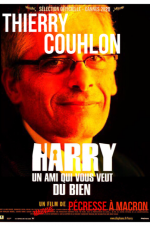Accueil > Évaluation / Bibliométrie / Primes > ERIH, projet de classement européen des revues
 ERIH, projet de classement européen des revues
ERIH, projet de classement européen des revues
dimanche 18 mai 2008, par
[|
QUEL USAGE FAIRE DES CLASSEMENTS DES REVUES EN SHS ?|]
Vous trouverez ci-dessous la page d’accueil des « initial lists » de classement des revues en SHS, telles qu’elles ont été élaborées dans le projet ERIH (Européen Reference Index for the Humanities), projet initié par l’European Science Foundation.
Cette page d’accueil a été entièrement récrite au mois de mars, de façon à introduire une argumentation de « précaution », qui dédouane le projet de toute récupération politique nationale.
A ce titre, nous attirons l’attention sur les précautions oratoires multiples de ce (pourtant) bref document :![]() Mise en garde contre l’utilisation de ces listes comme bases exclusives d’évaluation des chercheurs
Mise en garde contre l’utilisation de ces listes comme bases exclusives d’évaluation des chercheurs![]() Mention explicite du fait que ce classement des revues n’est pas fondé sur des critères qualitatifs mais quantitatifs (diffusion…).
Mention explicite du fait que ce classement des revues n’est pas fondé sur des critères qualitatifs mais quantitatifs (diffusion…).
[|
EUROPEAN SCIENCE FOUNDATION
European Reference Index for the Humanities (ERIH)|]
Use of the ERIH ’Initial’ lists
The ERIH lists will help to identify excellence in Humanities scholarship and should prove useful for the aggregate benchmarking of national research systems, for example, in determining the international standing of the research activity carried out in a given field in a particular country. However, as they stand, the lists are not a bibliometric tool. The ERIH Steering Committee and the Expert Panels therefore advise against using the lists as the only basis for assessment of individual candidates for positions or promotions or of applicants for research grants.
ERIH ’Initial’ lists
Please read carefully the ERIH Summary guidelines used by ESF Member Organisations and Expert Panels in order to fully understand the categorisation criteria. In particular, please be aware that the distinction between the categories A, B and C is not primarily qualitative ; rather, the categorisation also factors in issues such as scope and audience


